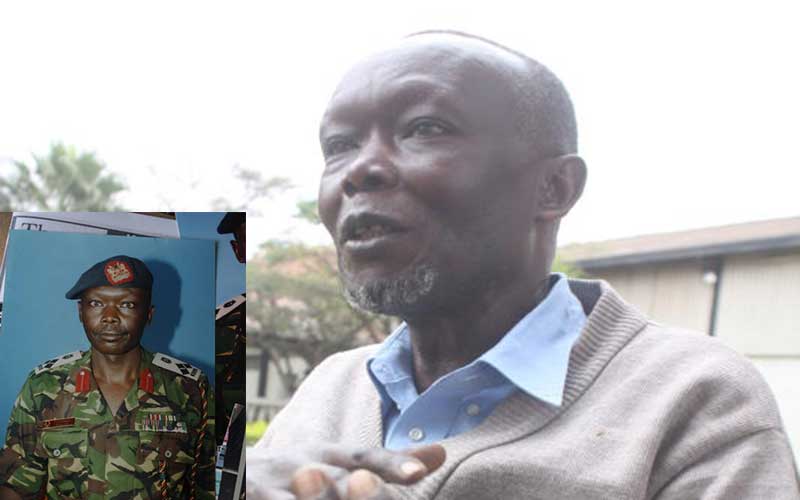×
The Standard e-Paper
Kenya’s Boldest Voice

Brig (Rtd) Philip Kipkoech Chebet during the interview. Inset: A younger Chebet when he was in active service. [David Njaaga, Standard]
A burst of gunfire rang out at night, shattering the calm at Nairobi’s Kabarnet Gardens, where President Daniel arap Moi was about to retire to bed.